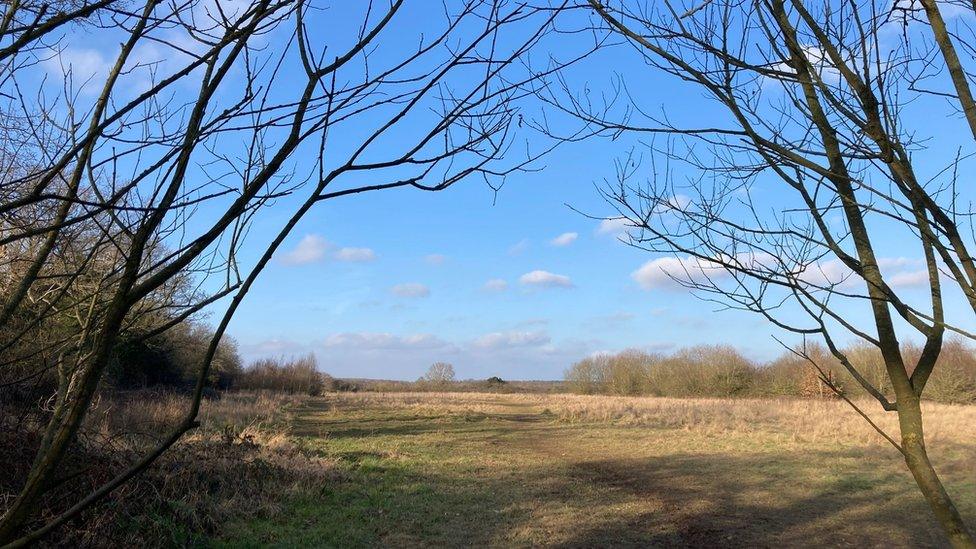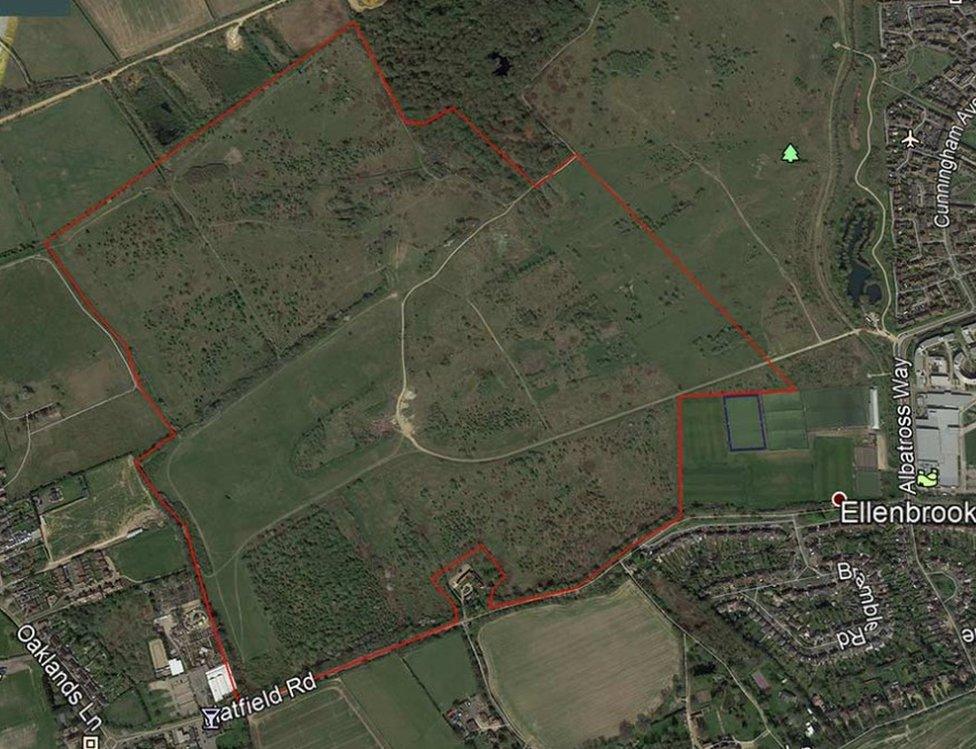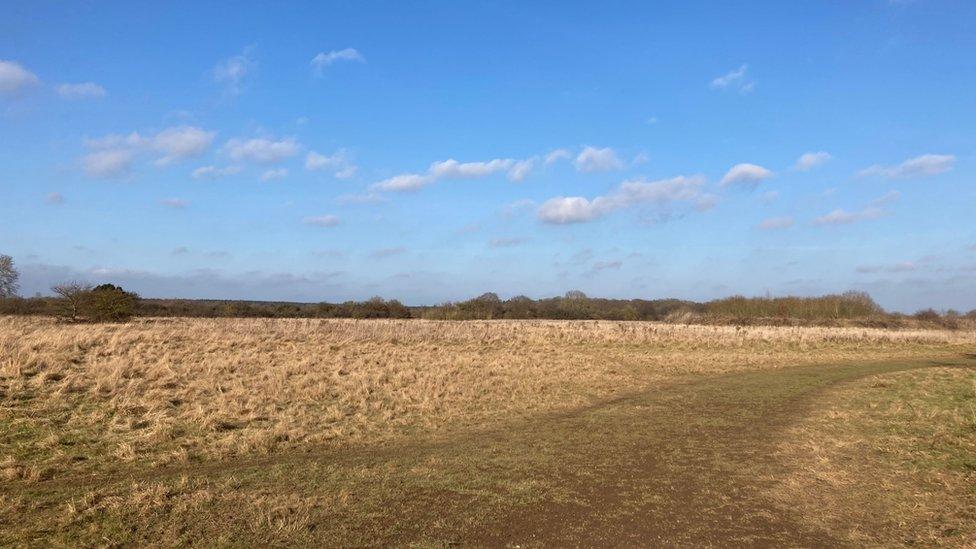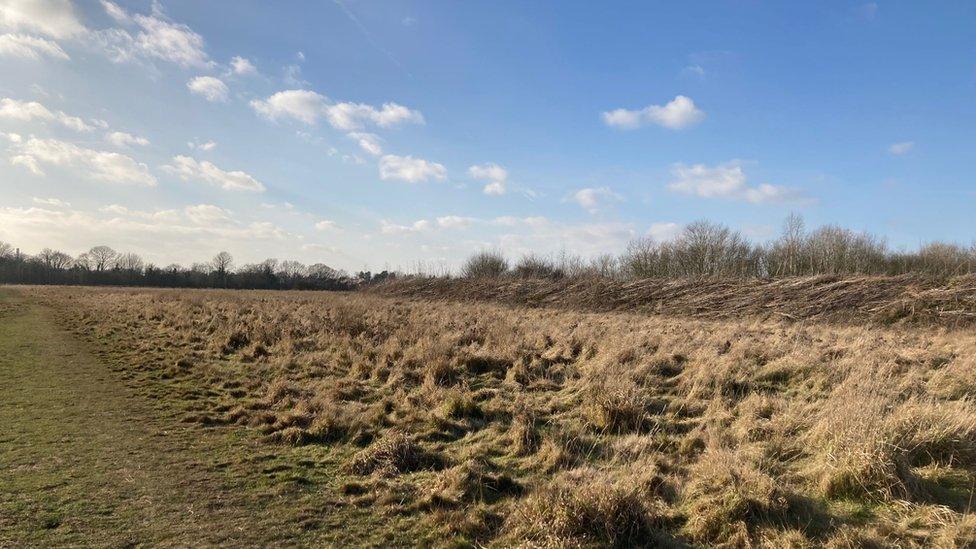Hatfield Aerodrome quarry plan dismissed on appeal
- Published

Planning inspector John Woolcock recognised the value of local access to site of the former Hatfield aerodrome
Proposals for a quarry on the site of the former Hatfield Aerodrome have been dismissed on appeal.
Hertfordshire County Council had rejected Brett Aggregates' plans to extract up to eight million tonnes of sand and gravel from the site between Smallford and Ellenbrook.
The Planning Inspectorate, external said harm to the green belt was "not outweighed by the benefits" of extracted minerals.
Brett Aggregates said it was "disappointed" with the appeal outcome.
Hatfield Aerodrome was a private airfield linked to the de Havilland Aircraft Company factory from 1930. It was acquired by Hawker Siddeley from 1960 and latterly British Aerospace in 1978.
The site was redeveloped in the 1990s with offices, businesses and homes covering part of the site. The rest is grassland known as Ellenbrook Fields which is popular with walkers and cyclists.
Brett Aggregates' planning application included new access to the A1057, an aggregate processing plant, a concrete batching plant and other "supporting facilities" for a period of 32 years, the Local Democracy Reporting Service said.
Following a nine-day planning inquiry in November, planning inspector John Woolcock published his decision on Tuesday, dismissing the appeal and determining that the plans should not be allowed to go ahead.

Brett Aggregates planned to develop the southern half of the former Hatfield Aerodrome site
While Mr Woolcock highlighted the "important contribution" the quarry would make to the county's need for sand and gravel, he said that as well as damaging the green belt, the plans would cause "harm to the character, appearance and amenity of the area" and pedestrian safety.
He added that noise could have "a significant adverse effect" on those living nearby and that even with "progressive restoration", the development would have an adverse long-term effect on the character of the area.
It "had not been demonstrated that the development could be made acceptable through the use of conditions or planning obligations", he said.

The Planning Inspectorate said restorative work to provide an enhanced landscape would be "so far into the future that it would not compensate for the cumulative harm"
Mr Woolcock particularly highlighted the inclusion of a "concrete batching plant", which it was said "plays no direct role in the winning and working of minerals".
In September, Brett Aggregates submitted revised proposals, external which included a number of changes including the omission of this plant.
At the inquiry hearing, the company asked whether the inspector could consider the changes contained in the amended scheme.
But Mr Woolcock ruled that the plans initially determined by the county council should be the subject of the appeal decision, because the changed development should be a subject for consultation.
A spokesman for Brett Aggregates said: "We are disappointed about the outcome of our appeal and we are working to understand fully the reasons why it has been dismissed before considering our options."

Ellenbrook Fields has a series of permissive footpaths popular with walkers and cyclists

Find BBC News: East of England on Facebook, external, Instagram, external and Twitter, external. If you have a story suggestion email eastofenglandnews@bbc.co.uk, external